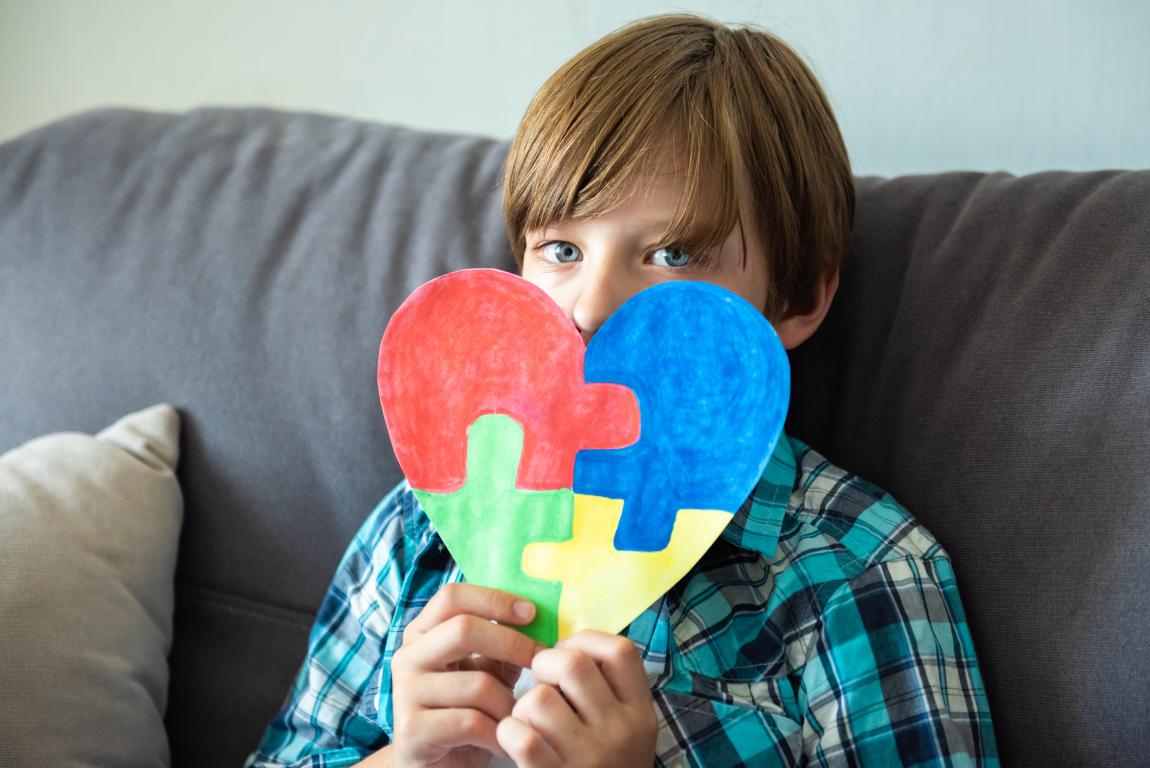Bio-degradable cards
Every card imaginable!
|
Bio-degradable cards Every card imaginable! Living Without Words Exploring the World of Non Verbal Autism
What is Non Verbal Autism?Non Verbal Autism refers to a form of autism where an individual is unable to communicate verbally or has very limited verbal abilities. While they may use sounds or single words occasionally, they often struggle with forming full sentences or engaging in typical conversations. Non verbal autistic individuals can still communicate in other ways, such as through gestures, facial expressions, or assistive communication devices. It is important to note that this condition exists on a spectrum, and each person's abilities and experiences will vary.
How is Non Verbal Autism diagnosed?The diagnosis of Non Verbal Autism is usually part of an overall autism spectrum disorder (ASD) diagnosis. Health professionals assess a child’s communication skills alongside other behavioural markers of autism, such as difficulties with social interactions, repetitive behaviours, and sensory sensitivities. It is often identified during early childhood, but in some cases, especially for more subtle signs, diagnosis may come later. Early intervention and assessment by specialists like developmental paediatricians, speech and language therapists, or psychologists can confirm whether a child is on the spectrum and whether they exhibit signs of being non verbal.
What causes Non Verbal Autism?The exact causes of Non Verbal Autism are not fully understood, though it is generally believed that both genetic and environmental factors play a role in the development of autism. Brain structure and function differences are also considered contributing factors. Non verbal communication challenges may be linked to these neurological differences. Some researchers are investigating whether particular areas of the brain responsible for speech development might be less active or connected differently in non verbal individuals.
Are all autistic individuals non verbal?No, not all individuals with autism are non verbal. Autism is a broad spectrum, and communication abilities vary greatly among individuals. Some people on the spectrum may develop strong verbal skills, while others may struggle with verbal communication throughout their lives. It’s important to remember that being non verbal does not equate to a lack of understanding or intelligence. Many non verbal autistic individuals can comprehend language and express themselves through alternative communication methods.
How do non verbal autistic individuals communicate?Non verbal autistic individuals often rely on alternative forms of communication. This may include gestures, body language, facial expressions, or using pictures and visual aids. Many also benefit from assistive technology such as communication apps or devices that allow them to type or select images to express their thoughts. Some use sign language or augmentative and alternative communication (AAC) systems, which are tools designed to support speech development or replace verbal communication entirely. Finding the best communication method is a personalised process that requires patience and understanding.
Can a non verbal autistic child learn to speak later in life?Yes, it is possible for some non verbal autistic children to develop speech later on. While not all will become fully verbal, many may learn to speak to some extent with the right support and therapies. Speech and language therapy, combined with other interventions like occupational therapy and developmental programmes, can help individuals develop verbal communication skills. Progress can be slow and differs from person to person, but many autistic children experience improvements in their ability to communicate, even if they do not become fully verbal.
What role does early intervention play in helping non verbal children?Early intervention is key when it comes to supporting non verbal autistic children. The earlier a child receives support, the better their chances of developing communication skills. Speech and language therapy, alongside tailored educational programmes, can significantly help. Intervention often focuses on encouraging communication in any form, building social skills, and reducing frustration. Early support can help children build the confidence to express themselves and develop strategies to navigate their environment more effectively.
What are augmentative and alternative communication (AAC) devices, and how do they help?AAC devices are tools that assist non verbal individuals in communicating. They range from simple picture boards to advanced speech-generating devices that allow users to select images or words to create sentences. For many non verbal autistic individuals, these devices provide a vital means of expressing their thoughts and needs. The use of AAC can reduce frustration, enhance learning opportunities, and improve the quality of life by enabling better social interaction.
Is being non verbal the same as having an intellectual disability?No, being non verbal does not automatically mean that an individual has an intellectual disability. Many non verbal autistic individuals have average or above-average intelligence. The inability to speak should not be confused with a lack of understanding. Some people may excel in certain areas, such as problem-solving, art, or memory, despite not being able to communicate verbally. It is crucial to recognise the difference between speech limitations and cognitive abilities when considering the support and education needs of non verbal individuals.
Can non verbal autistic individuals understand spoken language?Yes, many non verbal autistic individuals can understand spoken language, even if they cannot speak themselves. While some may struggle with processing verbal information, others are highly receptive to what is being said around them. It is important not to underestimate their comprehension abilities based on their lack of speech. Communication methods such as using simpler language, visual supports, or giving extra time for processing information can help them engage more effectively in conversations and interactions.
Do non verbal autistic individuals engage in social activities?Yes, non verbal autistic individuals can engage in social activities, though they may face unique challenges. Social interaction might be more difficult because they cannot communicate verbally, but this doesn’t mean they don’t enjoy socialising. Many develop close relationships with family, friends, or peers through other means, such as play, shared interests, or visual communication. With appropriate support, they can participate in activities and build connections with those around them, even if their communication style is different.
Is there a stigma attached to being non verbal?Unfortunately, yes, there can be a stigma attached to being non verbal. Some people may make assumptions about a non verbal individual’s abilities or intelligence, which can lead to misunderstanding and exclusion. It’s important to raise awareness about Non Verbal Autism and encourage acceptance and understanding. By promoting the idea that communication goes beyond words, we can help reduce stigma and create a more inclusive environment for everyone on the autism spectrum.
What can parents do to support their non verbal autistic child?Parents play a crucial role in supporting a non verbal autistic child. Creating a supportive and understanding environment where the child feels safe and encouraged to communicate is key. Parents should explore various communication methods, such as AAC devices, sign language, or picture boards, and work closely with specialists like speech therapists and occupational therapists. Patience is essential, as progress can be slow. Encouraging social interaction, focusing on strengths, and promoting independence will also help the child grow and develop.
What kind of education support is available for non verbal autistic children?Educational support for non verbal autistic children is essential for their development. Specialised programmes, individualised education plans (IEPs), and inclusion in mainstream schools with the right support can make a big difference. Speech and language therapy, occupational therapy, and personalised learning strategies can help non verbal children engage in learning and develop essential life skills. Schools should work with parents and professionals to provide a tailored approach that supports the child's communication and learning needs.
Can non verbal autistic adults live independently?Some non verbal autistic adults can live independently, while others may need ongoing support, depending on their individual abilities and needs. With the right life skills training, communication aids, and social support, many can live fulfilling and independent lives. However, each person’s situation is unique, and some may require assistance with daily tasks or access to supported living arrangements. It’s important to focus on building independence while acknowledging the need for ongoing support where necessary.
What are the long-term challenges for non verbal autistic individuals?Long-term challenges for non verbal autistic individuals may include difficulties with social integration, accessing education and employment, and maintaining independence. Communication barriers can lead to frustration and isolation. However, with continued support, the use of assistive technologies, and understanding from society, many of these challenges can be mitigated. Advocating for better accessibility in education, workplaces, and community spaces is essential for creating a more inclusive environment.
© 2024 The Card Project Uk Ltd
VAT: 453 2087 06
|